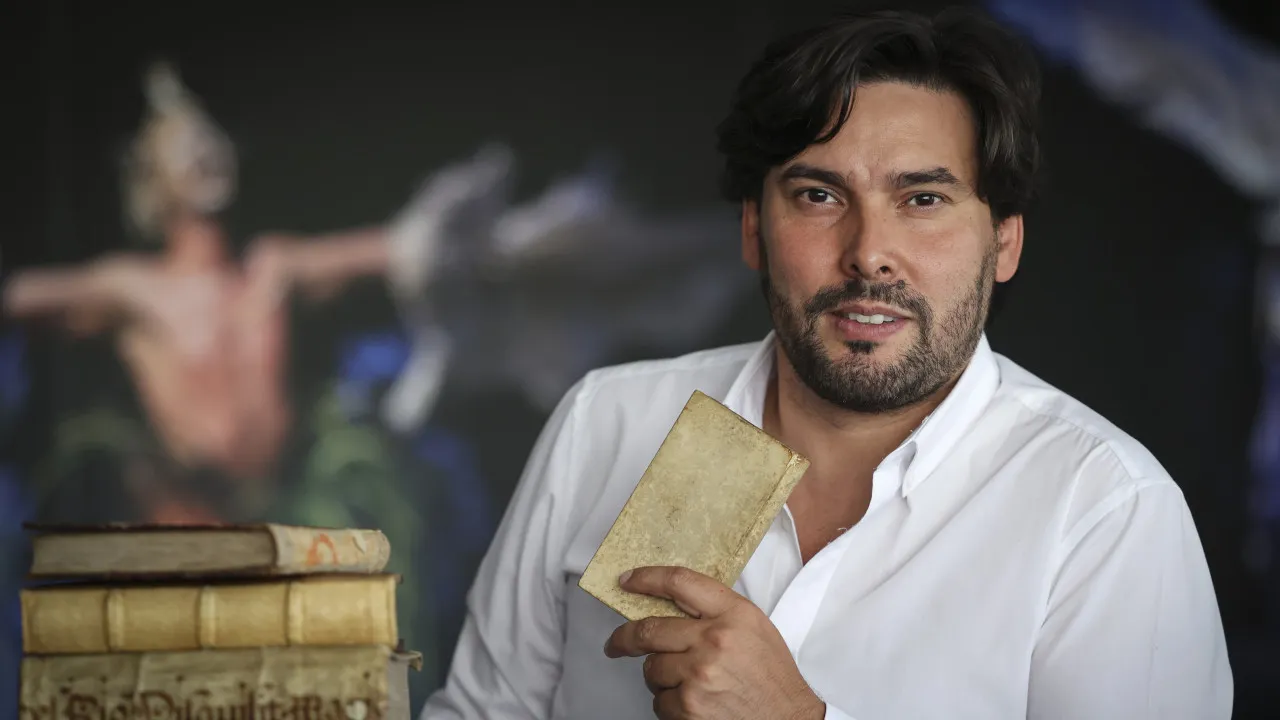
“I considered there was a significant gap between theological knowledge and how theology courses function, as well as the dynamics of the Catholic Church when preparing its priests,” stated the theologian in an interview, noting that there remains a “prejudice issue,” labeling those who discuss these topics as “conservative, backward, or medievalist.”
Discussing the topic publicly as a priest “can hinder progression within the hierarchy,” as it leads to being considered “conservative and backward” or someone “not aligned with the current spirit of Pope Francis’s Church.”
Conversely, there are groups of bishops and priests, “particularly outside Portugal,” who use exorcism as a means to “claim a sort of purity of Christianity, as they still hold these concepts, pray to ward off the devil, and respect the existence of evil,” according to the Vatican’s Dicastério da Comunicação consultant.
“In some ways, the devil is a burden for the Church,” and “exorcisms are not a topic of debate. For instance, the Catholic University does not have a single course in demonology,” he exemplified.
Nuno André, who completed a course in Exorcisms and Liberation in Rome, recognized by the Vatican, explained that the devil works in society in an “ordinary way” through temptations and sin, but also with an “extraordinary dimension, which includes possessions and inexplicable phenomena.”
Referred to as the “Treasure of the Exorcists,” the book is introduced as a “practical manual of defense against the art of darkness, revealing secrets of ancient codices on hidden forces,” published by Paulinas, a Catholic publisher.
In recent centuries, exorcism and possessions have receded in the Church’s priorities alongside scientific discoveries that suggest a vast majority of these issues are of psychic or psychiatric nature, which science addresses, he admitted.
However, “not everything is about the devil, nor is everything an illness. There are phenomena we have yet to explain that are disturbing, and for which we should pay attention and, critically, have a religious response.”
In many instances, exorcisms worked as placebos due to the “theatricality and suggestion” of the protagonists, explained Nuno André, who also has a background in illusionism and detected “many scenic tricks” that led people to believe.
Nonetheless, the “Church continues to believe in spiritual forces affecting humans and the surrounding environment, offering a response known as exorcism,” a ritual with “a specific liturgy conducted only by an authorized priest,” along with “liberation prayers” that anyone can perform.
“The Vatican has very clear directives on how its bishops and priests should act regarding potential possession cases, and this book will address precisely this point,” aiming to explain the appropriate procedures.
For this purpose, the author turned to literature from the 15th, 16th, and 17th centuries, highlighting the Malleus Maleficarum (The Hammer of Witches), among other original sources.
Back then, “priests needed to know how to handle the issue of the Devil, exorcisms, and thus, a comprehensive narrative around the devil was systematically created, explaining the exorcism process, the most effective prayers, procedures, and precautions,” he explained.
The book also illustrates “how the devil or the image of the devil was created and solidified by a Christian narrative,” noting that Satan’s image corresponds to other deities and “the influence of a cultural context” during the construction of Christian ideology.
“Often, the devil serves as an excuse for many things: Adam will say ‘it wasn’t me, Eve gave it to me.’ Eve will say ‘it wasn’t me, it was the serpent.’ And the unfortunate serpent takes the blame, a serpent that prefigures the devil,” he humorously remarked, reminding readers that the figure of Satan does not exist in Judaism, Islam, or Buddhism.
Moreover, the author reflects on the Church’s sexism by restricting the condition of witches to women, perceived as “great allies of the devil.”
According to Christian doctrine, a man could only be a sorcerer, which is “more akin to a healer resorting to nature’s forces and the occult to concoct his schemes.”
“The Church has not been fair with women,” the author admitted, also addressing the use of drugs to simulate spiritual experiences, a practice that persists with many charlatans today.
“Women have been vilified over these centuries,” and “we must end this discourse,” as it detrimentally impacts their existence in society.
Regarding witchcraft requests, Nuno André noted that the topics over centuries remained unchanged: “love, health, professional success, and money are still today’s metrics.”




